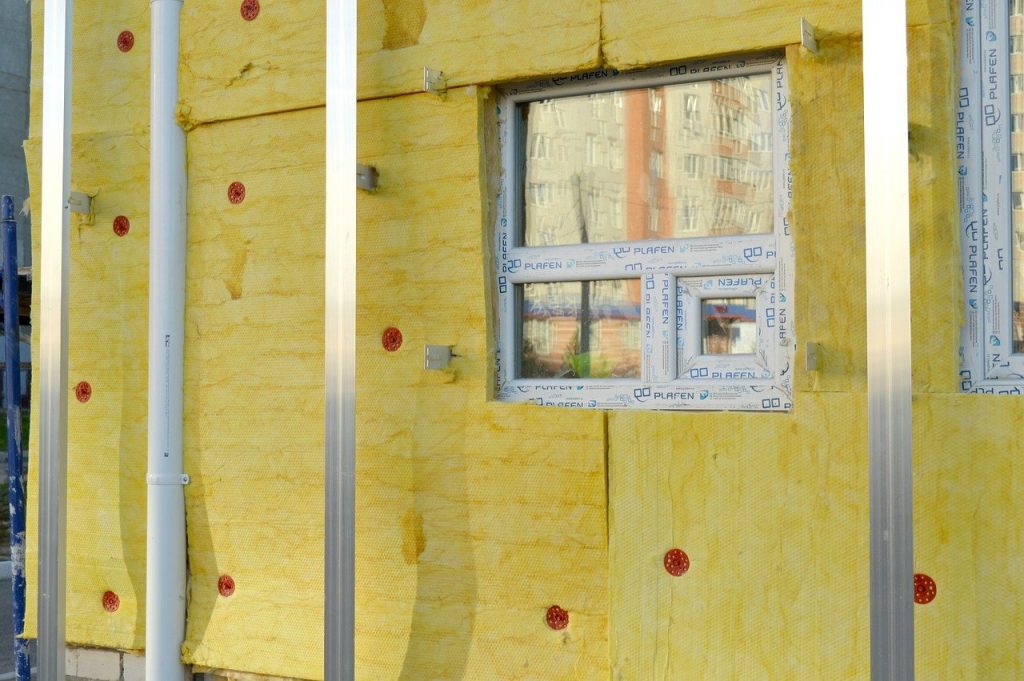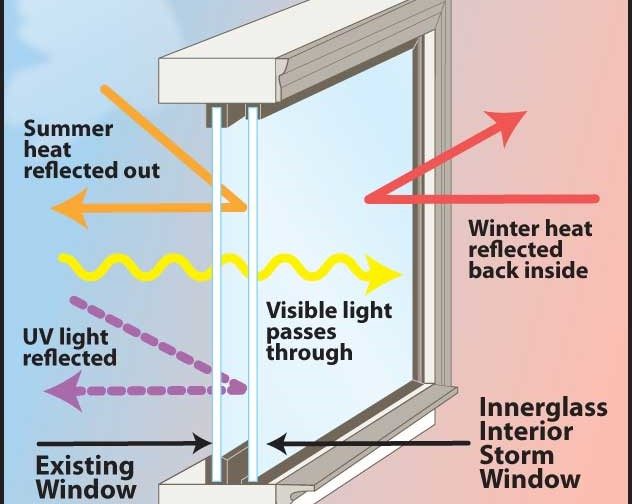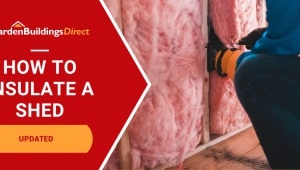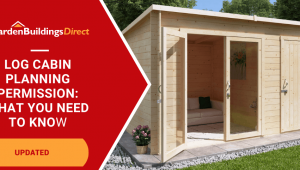Jump to:
Head in a spin about glazing? In this guide, we’ll cover everything about single and double glazing and their differences. This will be especially helpful if you plan to invest in a garden room soon. All ready? Then, let’s get to grips with glazing!
What Is Single Glazing?

Let’s begin by understanding single glazing, the simpler options of the two. Single-glazed windows consist of just one pane of glass within the window frame. This means there’s only one layer of glass or glaze. When you look at single-glazed windows, you’ll notice only one sheet of glass separating the inside and outside of your garden building.
Despite being much older than its counterpart, single glazing does have a few advantages that might make it an attractive buy. To get a better idea of its capabilities, we’ll look at its pros and cons.

Pros
- Single glazing easily releases heat. Whilst this may be negative in colder months, the increased thermal transfer through single glazing on a hot day may work in your favour. This is especially true if you want to keep the interior cool.
- It’s much cheaper to buy and install than double-glazing. This is simply because it uses less glass, whereas double-glazing uses two sheets. The thinner design also makes installation easier, as the frames are cheaper.
Cons
- Single glazing provides practically no insulation to your house or garden building. As we explained earlier, heat easily escapes when it comes into contact with the window. If it’s cold, expect to lose a lot of heat from the inside due to this lack of insulation.
- Since it is made from just one pane of glass, single glazing can be very fragile. It breaks more easily and can even shatter on impact. This means windows are more likely to get broken, but it may also be a security concern.
- Just as with heat insulation, single glazing doesn’t provide soundproofing. This means sound can come in and out.
- Single glazing suffers from condensation when warm air cools down on a cold surface and turns into a layer of water. Since it’s so thin, it can often act as this cool surface and result in condensation.
What Is Double Glazing?
We’ve seen everything about single glazing, but what about double glazing? Double glazing is the standard in windows these days. It involves double the glass sheets – two layers of glass with a small layer of space in the middle. This space is either filled by gas or a vacuum.
Like we did with single glazing, let’s look at the pros and cons once again.
Pros
- The best and most important feature of double glazing is its full insulation. The small space between the two glass panes makes transferring heat difficult. When you heat your house or summer house, these insulating windows keep the heat inside.
- It’s energy-efficient, keeping the heat longer due to slow thermal transfer. This means you won’t have to have radiators on for as long or spend as much money on your energy bills.
- Thanks to the two layers of glass, double glazing is much more robust, especially on impact. The windows won’t break as easily and, as a result, they’ll be much safer.
- It insulates noise, blocking out much of the unwanted noise from outdoors.
Cons
- Double glazing is more expensive than single glazing. It often requires twice as much glass, a more complicated design, and a bigger frame.
- Unfortunately, double glazing doesn’t completely eliminate condensation. Occasionally, condensation forms between the two panes of glass. This can be even more frustrating because it can’t be reached.
The Verdict
When deciding between the two, several factors influence your choice, including:
1. Insulating needs
- Double glazing: Ideal for garden buildings used year-round or during colder seasons. The two layers of glass create a barrier that minimises heat transfer and provides better insulation.
- Single glazing: Suitable for seasonal or occasional use, especially in milder climates. It allows more heat exchange, plus it’s a cost-effective option if insulation isn’t a top priority.
2. Energy efficiency
- Double glazing: Offers superior energy efficiency by reducing heat loss. In return, this can result in lower energy bills over time.
- Single glazing: Less energy-efficient than double glazing. It may suffice for structures where maintaining a specific temperature isn’t crucial.
3. Budget considerations
- Double glazing: Generally comes with a higher initial cost due to the added materials. However, the long-term energy savings may offset the upfront expense.
- Single glazing: More budget-friendly in terms of initial installation costs. Best for garden building where energy efficiency isn’t a primary concern.
4. Climate
- Double glazing: Recommended for regions with extreme weather conditions.
- Single glazing: Well-suited for mild climates where temperature extremes are less of a concern.
The choice depends on your specific needs, budget, and climate considerations. Evaluate these factors carefully to determine which option best suits your requirements.
Helpful Tips
For single-glazing users
Use heavy curtains or blinds to reduce heat transfer during colder months. You might also want to think about draft excluders for your doors and windows to keep chilly drafts at bay. Another option is to boost insulation by adding weather stripping around your windows. And don’t forget to check for any gaps or cracks in the window frame regularly.
Maximising double glazing benefits
Opt for energy-efficient window treatments like thermal curtains to further enhance insulation. Also, consider applying window films to block out harmful UV rays. Be sure to check and maintain seals to prevent any air leakage. For the best results, pair your double glazing with energy-efficient HVAC systems.
Round-up
So, which type of window is better? Double glazing is the better option, with a host of advantages that are especially useful in the UK. Its insulation and energy efficiency are too good to miss out on, not to mention how much stronger and safer it is.
Single glazing is also good if you prefer a cheaper option, but in all other cases, go for double glazing. Once you’ve chosen the ideal glazing, find out what the best thickness for a log cabin is.
If you have any further questions, please don’t hesitate to contact us at 01909 768840.
Shop Garden Offices









